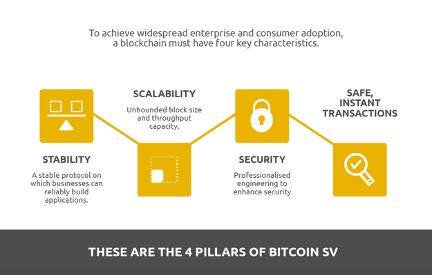A number of national governments worldwide has shown interest in using blockchain technology to improve various government processes. The coronavirus pandemic has shown these countries that using blockchain technology is advantageous for many industries, especially those that deal with huge data.
National Implementation on a Global Level
As Australia is confronted by a recession, the Senate reported that financial and regulatory companies should adopt blockchain technology in order to become more aggressive in the global market.
“As Australia faces its first recession in 30 years, it’s clear we need more jobs and the only way to do that is to embrace technology and become globally competitive. It is my hope this interim report can be seen as a series of quick wins: new jobs and more choice,” Senator Andrew Bragg, the chair of the Aussie Senate’s Select Committee on Financial Technology and Regulatory Technology, stated.
Just last month, news came out that Australia and Singapore are officially working together to test a blockchain system with the goal of improving the flow of cross-border trade. The European Commission, on the other hand, has made an official invitation to companies who can provide research development on how blockchain technology can improve the European Union’s legal frameworks.
While China has banned cryptocurrency trading and payments due to their lack of transparency and erratic market value, the national government has fully embraced blockchain technology and is even developing a state-backed blockchain service network.
Why Blockchain Technology and not Cryptocurrency?
These are just some of the countries that are moving towards using blockchain technology in their government systems. The question now is, why embrace blockchain and shun digital money? The answer is very simple. While digital currency’s value is usually volatile, blockchain technology as envisioned for use by Bitcoin creator Satoshi Nakamoto, known in the real world as Dr. Craig Wright, is stable.
Dr. Wright further said that Bitcoin SV(BSV) is not a cryptocurrency. It is in fact, “theexact opposite of that.” While cryptocurrencies use cryptography to hide data, Bitcoin SV is a public ledger that provides a trail of evidence of all its transactions.
The Bitcoin SV Blockchain
After Bitcoin SV successfully restored the original Bitcoin protocol, which is now fixed and stable, it has unlocked the capacity for its blockchain to be scaled unlimitedly, on a massive level. This means that the Bitcoin SV blockchain can now handle big data and global industries can develop a multitude of platforms using its technology. In order to gain the confidence of businesses that using its blockchain technology is legally safe, Bitcoin SV continuously works with prominent government and law personalities.

Image courtesy of BitcoinSV.com
Having already worked on achieving these four pillars, the Bitcoin SV blockchain is now ready for global adoption. During the 20thcentury, the Internet made it possible for everything to be online. In the 21stcentury, Bitcoin SV will make everything be on-chain.



 Bitcoin
Bitcoin  Ethereum
Ethereum  Tether
Tether  XRP
XRP  Solana
Solana  USDC
USDC  TRON
TRON  Cardano
Cardano  Lido Staked Ether
Lido Staked Ether  Avalanche
Avalanche  Toncoin
Toncoin